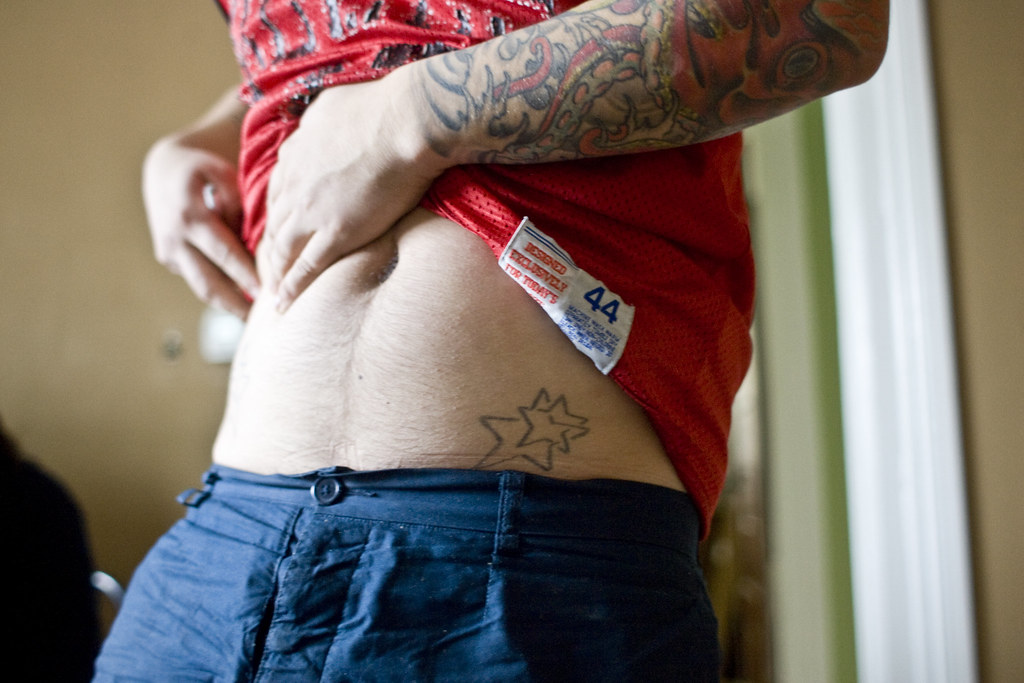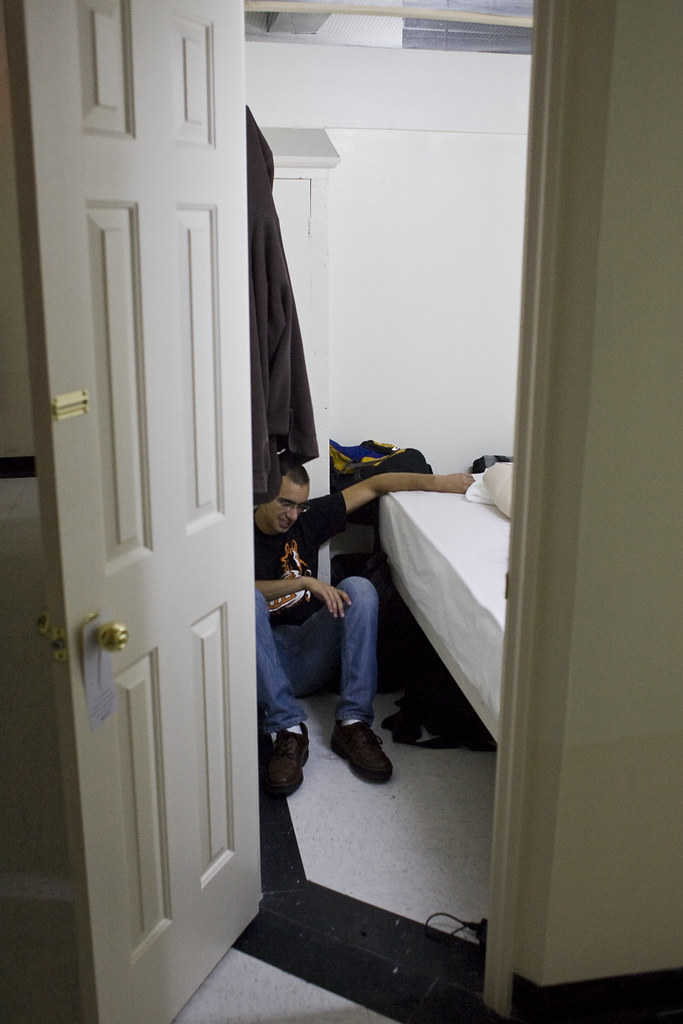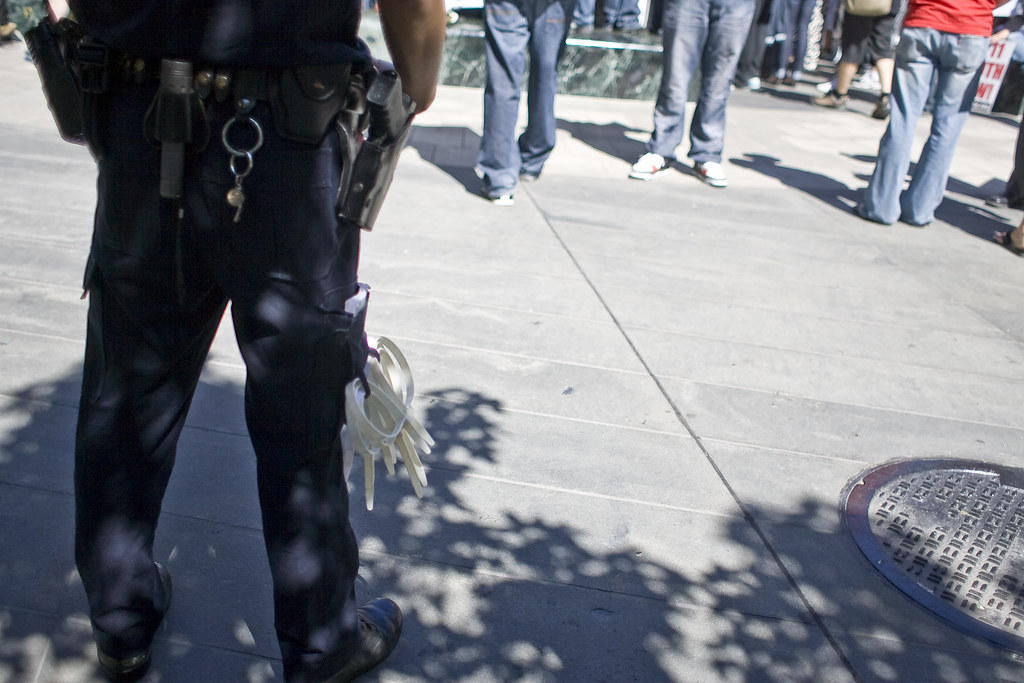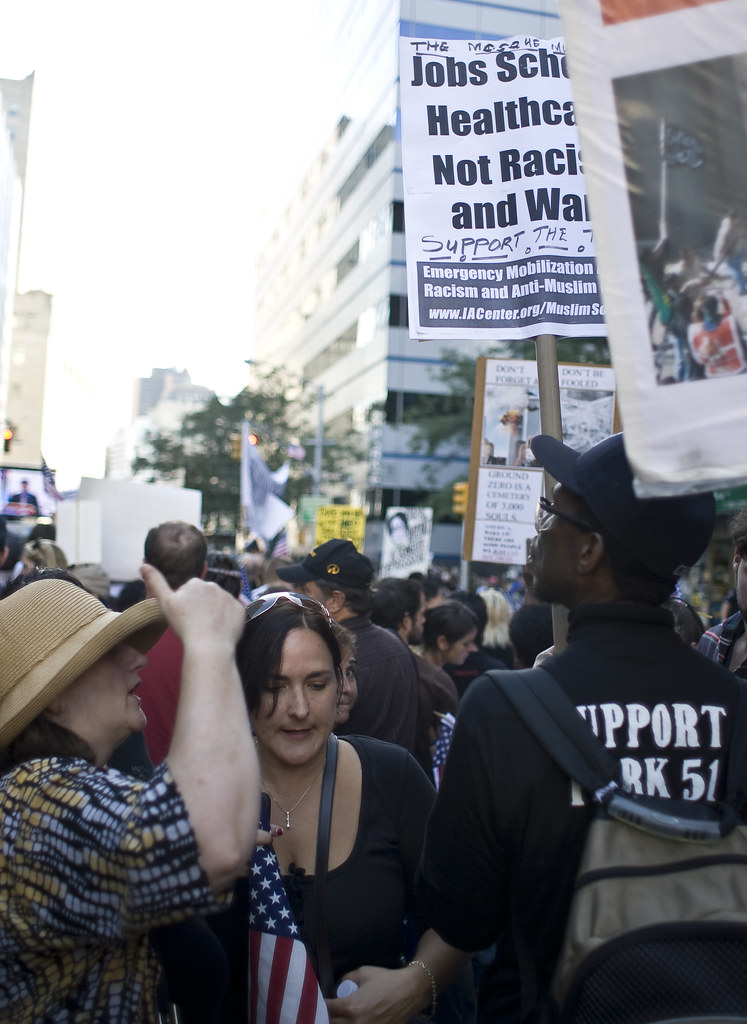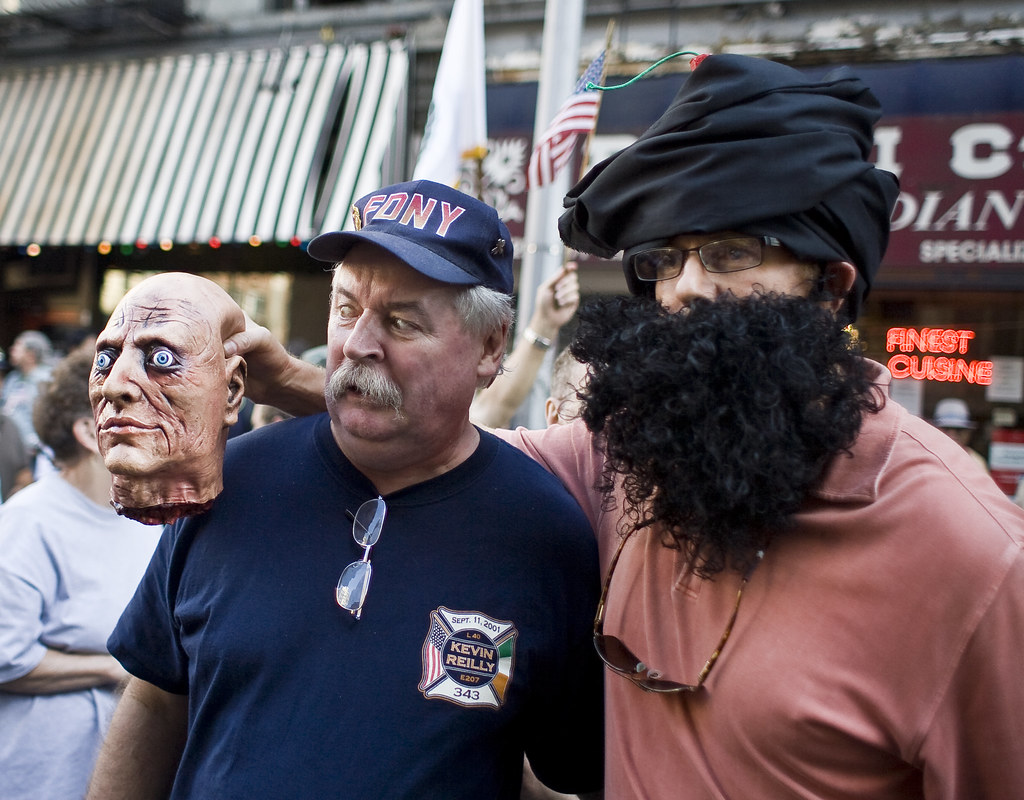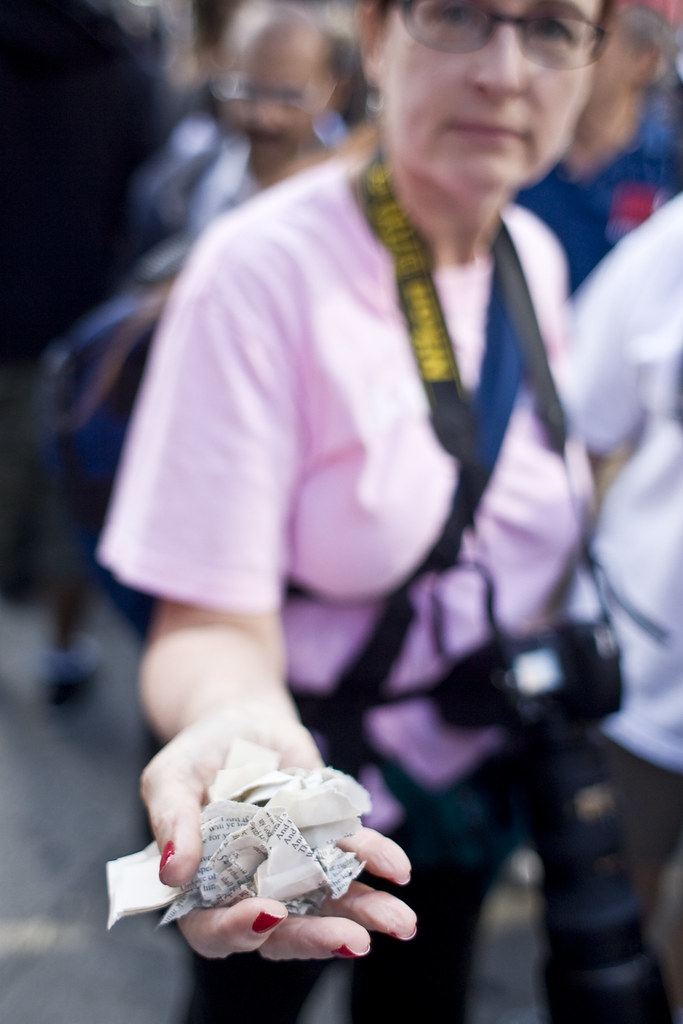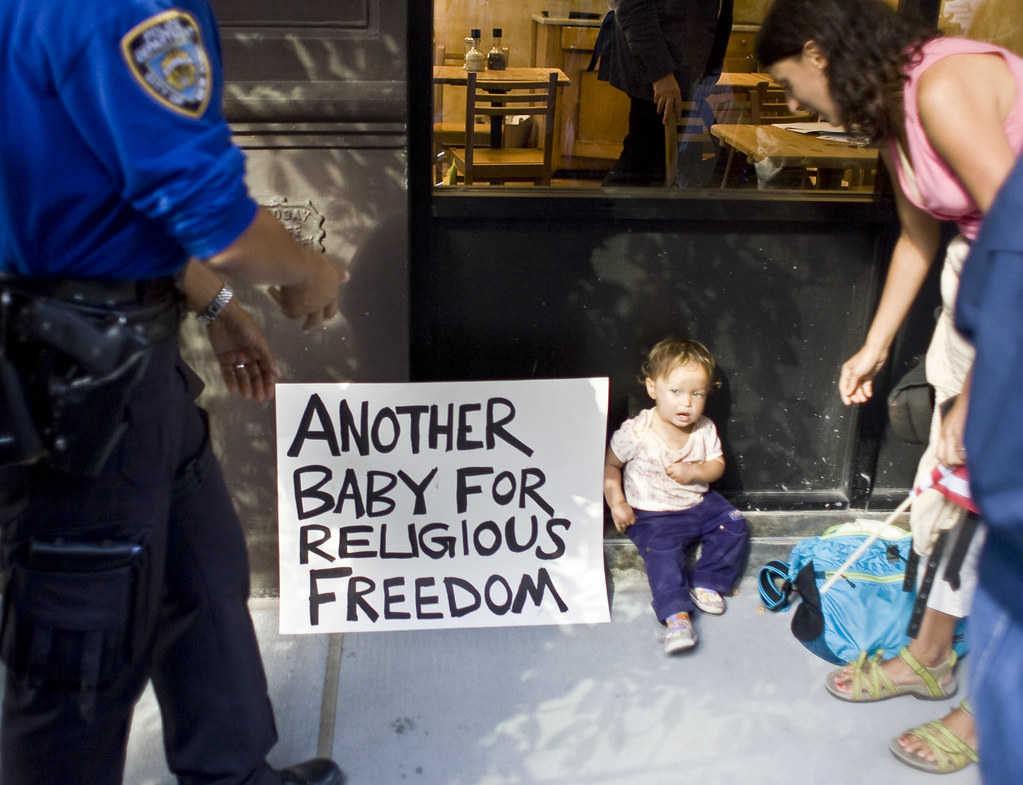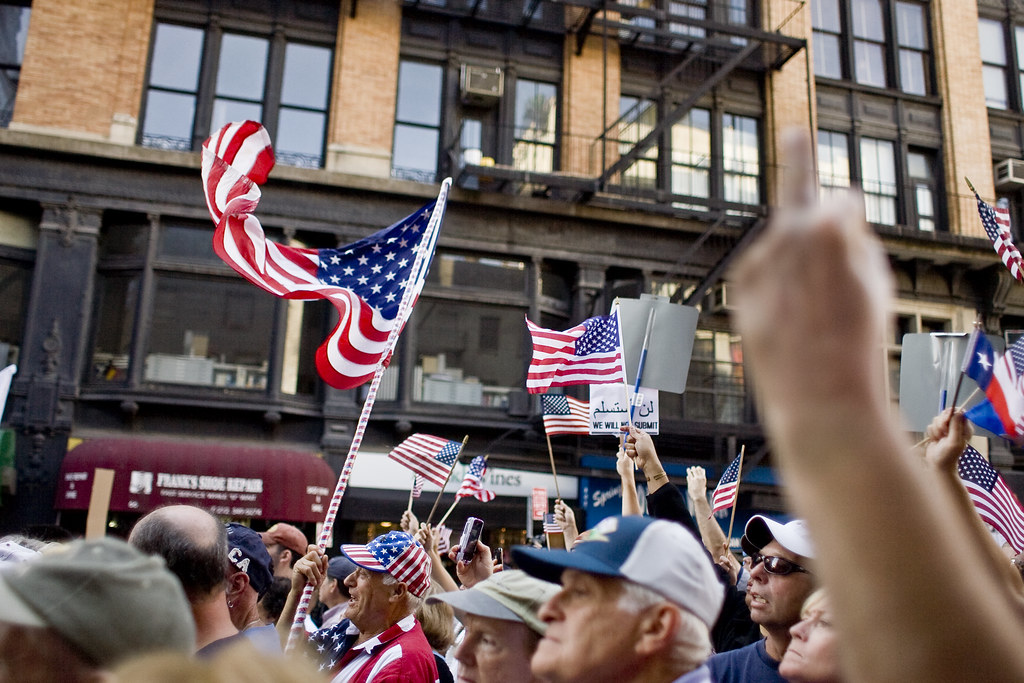Today, we met Anthony, took a few photos, and began to interview him.
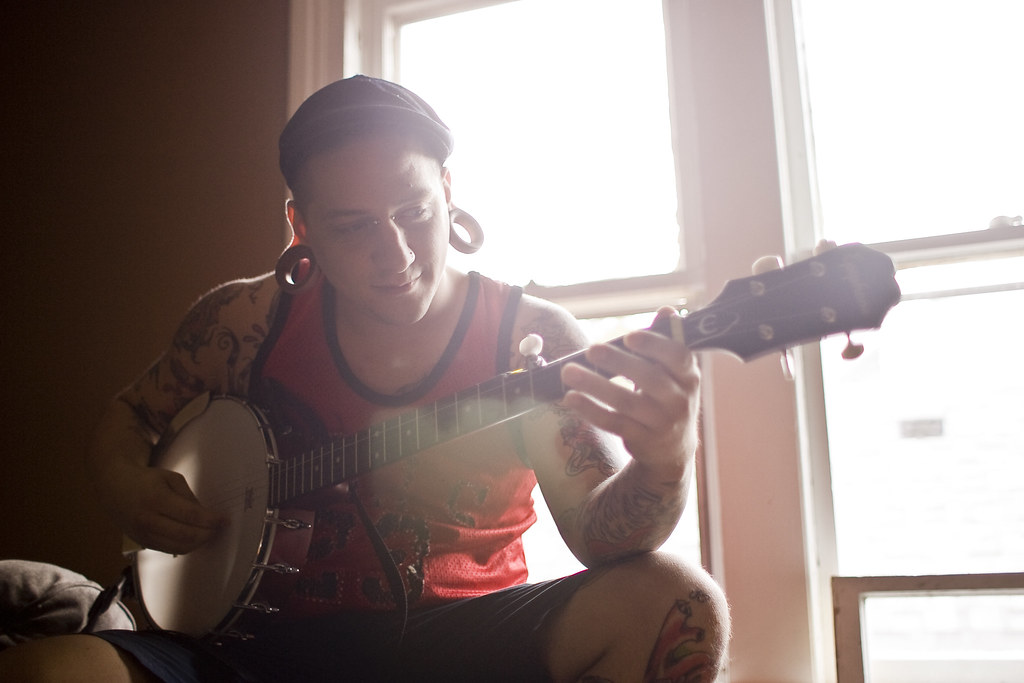
Anthony playing a banjo he bought recently. He plans to try to incorporate it into his music.
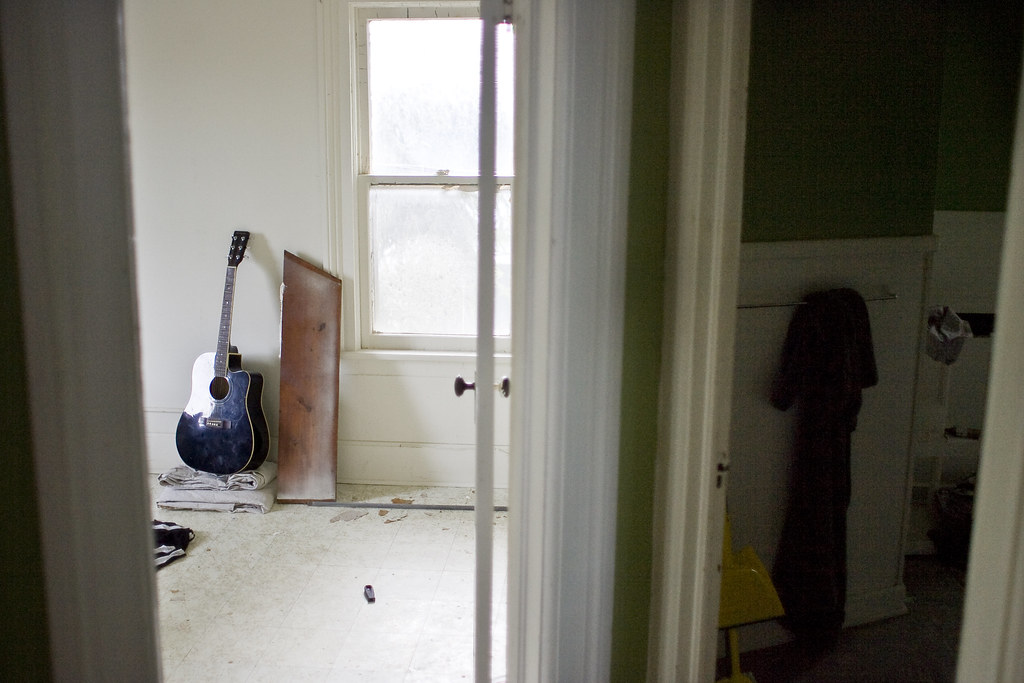
Even the tattoos Anthony knows were a mistake are a big part of who he is. Here, he shows us the star tattoos he got with ballpoint pen ink when he was 14.
